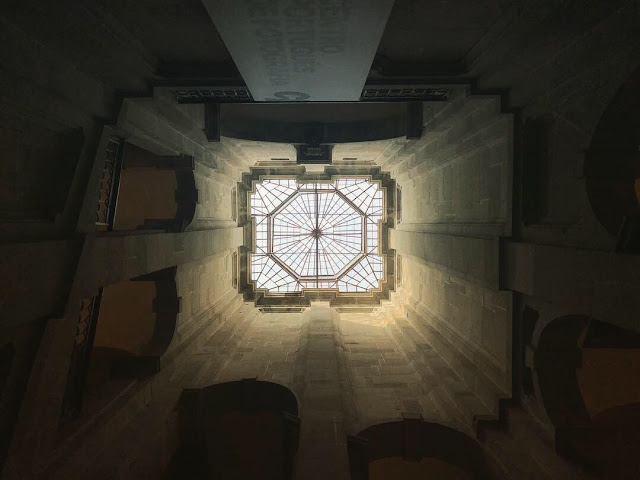It’s been almost a year. Over eleven months since I last published a word to this blog. Lately, I’ve thought hard about why that is. I’ve got a handful of secret notebooks; a whole folder of private Word documents on my desktop about public writing, about authenticity, about loneliness. There are hundreds of these abandoned projects. Each false start is a stray pebble, twirling around in the pocket of my mind.
The truth is, it’s a lot easier to be honest when you can hide these pebbles within the luxury of privacy. But that luxury isn’t challenging, nor productive. So here we are. I’ve decided to try writing more for an external audience, to push my own words back into the discomfort of a public arena. I have so much to say, and I’m eager to put a voice—a true, resonant voice—to the things that I’ve seen. I hardly know where to begin.
Maybe the best place to start is with an ending.
Last weekend, I went to Porto and found myself in the midst of a Portuguese funeral procession. I was wandering around the city and had ended up in the
Cemitério do Prado do Repouso when I heard someone running behind me. I turned around to see a woman in a hoodie, carrying nothing more than a wallet and cell phone, slowly jogging down the path. I stopped to let her ahead. She seemed hardly out of breath, like she was in no more than a tiny hurry to arrive somewhere. I kept walking.
I found the crematorium, where gray smoke was breezing up toward the sky, and I wondered who was inside and what the smoke had once been. As I turned away, I saw a black hearse approaching. It was glassy and glossy and flowers were exploding over an enormous coffin in the back. The woman in the hoodie was now walking beside, talking and laughing with three or four other people. They seemed impossibly relaxed. They smiled and waved at me as they passed, carrying nothing more than a few motorcycle helmets. The small group proceeded to the crematorium, where they unloaded the casket and carried it inside. They disappeared.
I have no idea if what I saw was “normal,” if Portuguese funerals are generally so casual. But I felt a pang of modest hope, watching them stroll forward. I imagined they were comfortable with mortality, that they would end the funeral and all go drink together at a sunny sidewalk café. I liked to think they’d drink a few messy toasts to the person whose body was becoming ashes, and then they’d continue with their lives. I liked to think it would be simple for them.
There were lots of other shimmery moments, images that in my recollection seem more magical and mysterious than reality. I saw cats climbing over flea market stalls toward abandoned beer glasses, an ancient bookstore filled with anxious tourists, and plain walls painted to life with Escher woodcuts. I saw sleepy men napping next to fiery peacocks at the edge of the miradouro; a photography museum nestled within in a drafty old prison. A setting sun, embarrassed in the pale ragged sky. A woman with a voice worn loud by decades of cigarettes, shouting to announce the sale of lottery tickets. Another woman, still, knowingly winking at me as I sat alone in a noisy and chaotic café. I saw warmth, and attention, and movement.
These impressions, soft and tattered, are worth more to me than any hard data about the trip. They are disparate pebbles, a mismatched set of chipped thoughts and stolen ideas polished smooth in my own head. They are a mess, but they are mine. And with them, I pave my path forward.









